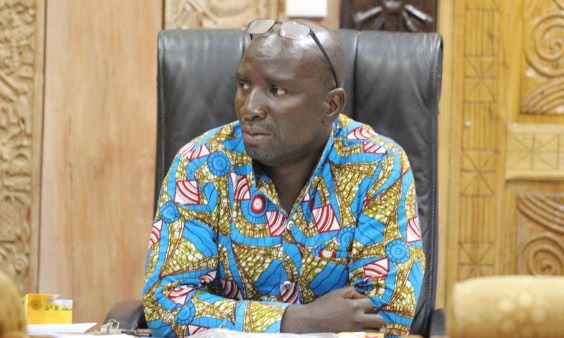Socrate Safo on Ghana’s Music Revival: Rediscovering a Forgotten Industry

Reimagining Ghana’s Music Industry: Rekindling a Forgotten Market
By Socrate Safo
Dear musicians, producers, creatives, and allies of Ghana’s vibrant music scene—before diving into this piece, take a moment to reflect on Proverbs 24, which reminds us of the need for wisdom, understanding, and action in times of decline.
For years, there’s been an ongoing debate over online streaming vs. traditional CD sales—a discussion born from frustration. Many musicians have grown increasingly disillusioned with the meager income generated from digital platforms, questioning where the robust industry of the past has gone. The key question is: What broke the system?
Historically, Ghana’s music industry thrived on multiple revenue streams—concerts, endorsements, merchandise, and most importantly, direct music sales. This foundational income came from physical formats like vinyl, cassettes, and eventually CDs. As technology evolved, so did formats, but the physical distribution model was never legally abolished—it was simply cast aside.
This wasn’t due to consumer rejection, but because the industry failed to adapt content to changing consumer preferences. As CDs became capable of holding more songs, musicians began releasing albums with 8 to 10 tracks—many of them fillers. Consumers, especially drivers who formed a large part of the buying public, grew frustrated with having to pay for entire albums just to enjoy the two songs they actually liked.
Radio DJs and music pirates filled that void. They curated hit songs into compilations, creating a better listening experience. Pirates understood the market; they responded to what people wanted, while the mainstream industry stubbornly pushed outdated formats. As CD sales declined, blame was wrongly placed on piracy, instead of reflecting on product quality and relevance.
Rather than evolving, the industry waged a battle against pirates—seizing CDs, promoting anti-piracy messages, and introducing security stickers. None of it worked. Consumers continued to support pirates because they offered value and variety.
Then came digital streaming, promising a global audience and transparent royalty systems. Musicians abandoned physical distribution en masse, shutting down CD plants and discarding distributors who had supported them for decades. But the promised prosperity from streaming never came. Many artists today are worse off, financially, than they were in the era of CDs.
Streaming platforms are built on a model that benefits the platform owners, not the artists. Music is used to attract users, whose data and attention are monetized through ads and subscriptions. The creators—musicians—receive only a fraction of the profits.
So, what’s the way forward?
Let’s be clear: streaming isn’t the enemy, but it shouldn’t be the only path. The future of Ghana’s music industry lies in a hybrid model—embracing both digital platforms and physical sales.
CD and pen drive players still exist—in cars, homes, and public transport. These formats can be revived with the right strategy. Here’s how:
-
Product Innovation: Rather than full albums, offer curated compilations or exclusive singles that cater to audience tastes.
-
Effective Marketing: Just like digital releases, physical formats need buzz, branding, and visibility.
-
Cultural Rebranding: Let’s make owning CDs or pen drives “cool” again, tapping into nostalgia and exclusivity.
-
Narrative Control: Media must shift the conversation. Physical formats aren’t outdated—they’re collectible, personal, and profitable.
-
Strategic Promotion: Just as streaming platforms promoted their model, the physical music market needs its own positive propaganda.
If vinyl can make a comeback globally, so can CDs and pen drives in Ghana—if we reimagine them, not as relics, but as revenue channels.
This isn’t about going backward. It’s about thinking forward with flexibility. Let’s stop seeing streaming as the only option and recognize that multiple formats can coexist. Let’s create a system where consumers can buy and own music again—digitally and physically.
To make this work, artists, producers, distributors, and the media must collaborate. A successful music ecosystem benefits everyone—from bloggers to radio hosts, distributors to fans.
The market isn’t dead—it’s just waiting for us to rethink it.






